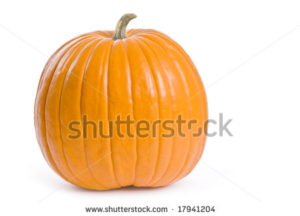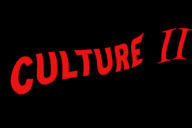Photo by: Ally Zhao
How do you manage ennui?
By not living in a suburb. For me, ennui has always been synonymous with suburban life ever since I discovered Arcade Fire’s album The Suburbs and read a Rolling Stone review that used ennui to describe it. Having never lived anywhere other than a metropolitan city I imagine suburbs as something incredibly boring and bland.
I think this is how I’ve managed to stave it off actually. By defining ennui for myself as something I’ve never experienced I can create a sort of base denial. Like I may feel it to a certain extent from time to time, that is unavoidable, but my internal monologue says “hey, at least you aren’t living in the suburbs. God that would be awful.” That way total all consuming ennui is a mental impossibility since I will never achieve that ideal.
In your opinion does this photograph of a pumpkin:

A. Reflects a profound reality
B. Masks and denatures a profound reality
C. Masks the absence of a profound reality
D. Lose all connection to reality, becoming pure simulation
E. All of the Above
Source: UNDERSTANDING JEAN BAUDRILLARD WITH PUMPKIN SPICE LATTES
So as I’m writing this I’m actually drinking coffee out of a mug that has Magritte’s treaties on how images and words behave that I picked up in Brussels. So obviously it’s a sign to consider this image in terms of Magritte. An image is first and foremost not the real thing it is merely an image. It is a substitute for the real thing communicating the same information but limiting the sensory information to sight.
By looking at this stock photo, I immediately identify it as a pumpkin. How do I know this to be true? I have seen a pumpkin before, held one, tasted it, and have confirmed its existence with other humans. By my own observation pumpkins exist. (This doesn’t take into account cultural differences, a person who has lived in the arctic circle all their life may not know what to make of this image if they have never seen a pumpkin and their culture has never farmed pumpkins) Going off that basis I can identify this image as a visual approximation of what I think and remember a pumpkin to look like. I also have the context of this photo being captioned “pumpkin” which reinforces my certainty. I can also separate this an image from the real thing. I cannot hold it, feel it, taste it, etc. and thus recognize that it is a stand-in for the concept of a pumpkin and not an actual pumpkin you have handed me.
So I guess my final answer is a combination of A, B, & C since it exists as a reality and non-reality occupying the same liminal space as abstract concepts.
Many Existentialist define existence as being-in-the-world or being-with-others. What do you think is the role of community, in relation to the development of one’s self?
I think, perhaps more than we like to admit, the community plays an integral role in the construction of the self. Acceptable behavior and presentations are decided by the societal unconscious. We adhere to certain social norms and bend others (even though this often still lies within the socially acceptable). It’s my belief that humans are fundamentally scared of being alone and thus we sacrifice a bit of our own individuality to avoid ostracism.
This isn’t entirely bad, it prevents society from being an anarchic free for all, and that is how we internally justify it. So the question then becomes how do we negotiate the dissonance of being an individual and part of a collective whole. Well, we push against some of the more elastic social norms. As infants in development, we are taught the rules of society through trial and error. In that developmental stage we gain an understanding of what one can and can’t get away with so to speak. This explains the trope of “teenage rebelliousness” and the more reserved acquiescence of young adulthood. In the process we become ‘secret individuals’ we know our impulses and desires and which ones to act on and which to repress.
It’s a Freudian battle of Id and Superego but one that is less internal and more reliant on how we perceive society and locate ourselves within it. I think we fool ourselves into think we have free will when we end up doing things because we seek approbation from our peers. We constantly re-ify our place as part of the ingroup and cast off anything that could jeopardize that. At that point the self is no longer determined by you but by the collective whole. Your “individuality” is only because that is entirely dependent on and permissible through existence and recognition as part of the community.
Do you think trends are accelerating faster than ever ?
In short, yes. I think we’ve gotten to a point where trends become so saturated so quickly that they no longer have much of a shelf life. As a society, community, we become obsessed whatever content constitutes a trend. The natural course of that is actually very capitalist in the way the becomes a market demand and then a point where the bubble bursts and demand wanes. The internet age has quickened this pace, content spreads to all corners of the world virtually instantaneously and niche interests gain a following much quicker, and more importantly visibly, than we’ve ever seen before.
The other edge of this sword of internet culture is that we are constantly refreshing. There is more information than one person can possibly ever consume but our eyes are bigger than our stomachs. We crave the rush of discovery. Thus our attention spans become more limited. This is an age where everything demands our attention at once, an age that is still very much in its infancy, and I think it will be some time before we figure out how to shift the way we interact with trends.
Why did we kill god, what will we do without him ?
We outgrew god. Well, we outgrew the mysticism that capital “G” God represents I think. God, in my opinion, belongs to the same sort of categories as the Greek and Roman gods. They were used to explain the world around us and soothe our fear of the unknowable. They were a singular explanation as to the why things are the way they are and that was good enough when communities were isolated and the dissemination of information and culture was limited. Humanity has grown and evolved since then and so has our belief system. Secularism is still a belief system but one that puts its trust humanity to observe the world around it and explain it. We’ve moved our belief in a supernatural omnipresent power to a belief in ourselves. As a culture we’ve become more self-deterministic, the secular intellectual in me points to science to explain the world around me. It’s a system built off of what humans can observe as the laws governing the known universe. I was actually reading in the forward of a book i just started, that this concept (and I hope I’m not butchering it) is what Kathryn Shultz refers to as “naive realism” which is a belief system governed by what the individual can observe in the world around them. Ex. “Gravity, an unseen force, has a visible that behavior that I can observe and replicate in the real world myself therefore it must be true” There is something comforting in the concreteness of this way of thinking, even if it is flawed and incomplete. It relies on humanity to be its own god so to speak.
What a god represents in terms of the mechanics of society still exists. I doubt that will ever go away. We will never know everything and we always be afraid of that which we do not know. As long as that exists we will need something to sublimate our uncertainties onto. The concept of “god” serves a critical function in staving off existential dread and will never completely disappear, it will just continue to change forms.
What gives you the right?
¯\_(ツ)_/¯





